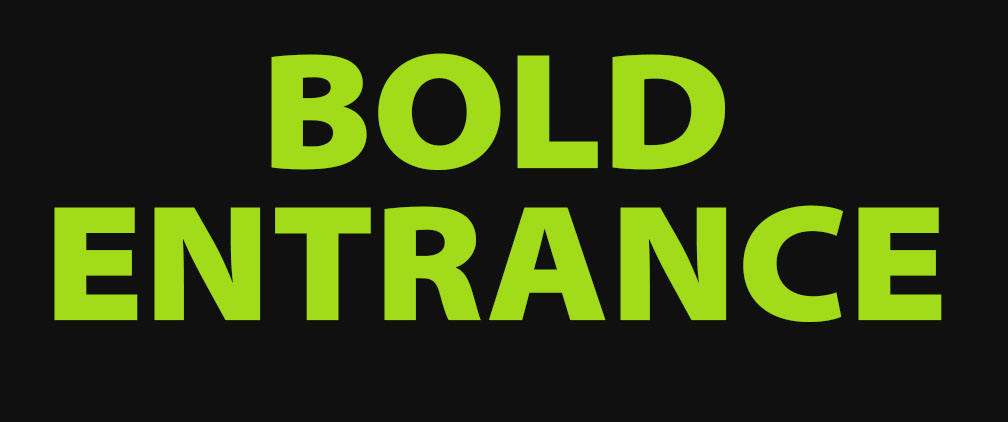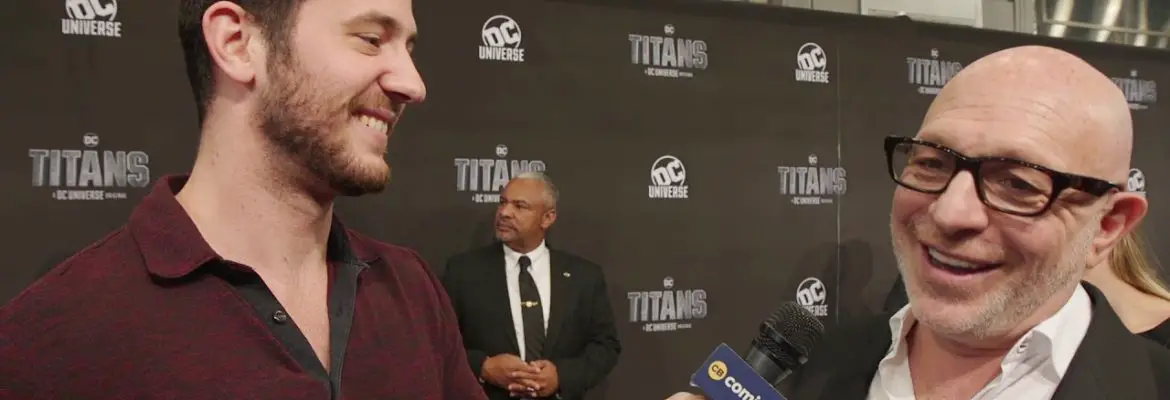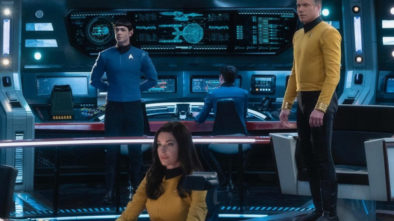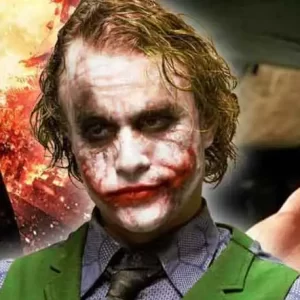Akiva Goldsman On The Difficulty Of Bringing ‘Titans’ To The Small Screen
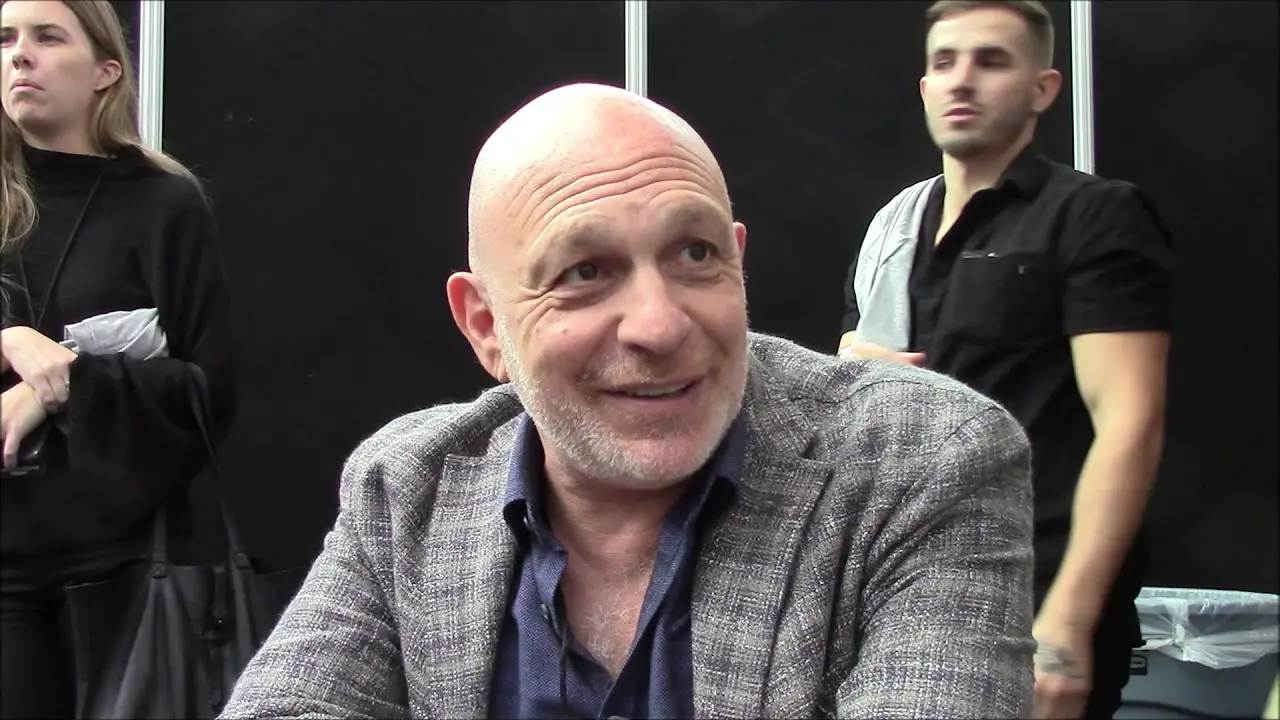
Akiva Goldsman At New York Comic Con. 2018.
At 2018’s New York Comic Con, writer/producer Akiva Goldsman talked about the long and difficult road he and co-producer Geoff Johns took to bring DC Universe’s Titans to the small screen. Ultimately, they decided to take Titans in a much darker direction than the lighter tone of Teen Titans Go!
Despite the rocky performance of the DCEU to date, Goldsman and Johns’ risky vision seems to have paid off with favorable reviews from critics and fans alike. Season 2 has already been green-lit, and a spin-off series, Doom Patrol, is in production.
Dick Grayson Is The Central Figure, But The Show Was Almost Made Without Him
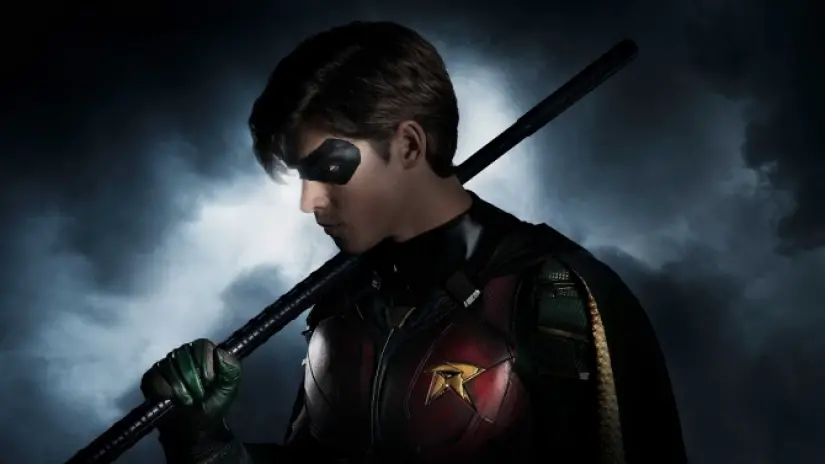
Brenton Thwaites as Dick Grayson.
For the uninitiated, the original premise of Teen Titans revolved around a group of superhero sidekicks who decide to go it alone and form their own superhero team-up similar to the Justice League. Many sidekicks and other metahumans have come and gone in the comics, but always Batman’s former sidekick Dick Grayson remains the central figure.
This remains the case in the 2018 TV series, but for years both Goldsman and Johns had a hard time securing the rights to the character. At one point they even tried to develop a Titans TV series without Dick Grayson. But the script never worked.
Goldsman Has A Long–And Sometimes Unfavorable–Association With Robin
Goldsman has had his hand in many television and film adaptations of Dick Grayson since 1994. He wrote the much maligned Batman Forever, which introduced Dick Grayson’s Robin to the big screen, followed by the film’s reviled follow-up, Batman and Robin (1997). Goldsman referred to his appearance at NYCC as his “apology tour”. In his own defense, Goldsman said studios weren’t ready back then to green-light “reality based and psychologically real characterizations [of superheroes].”
Still, fans have a long memory, and many would have rather he kept away from any DC properties. But Goldsman has done the opposite. In 2007, he tried and failed to get a live action Titans feature film made and then in 2014 he co-wrote an unmade Titans pilot at TNT before striking gold by writing and co-producing DC Universe’s inaugural show.
Similarly, his co-producer Geoff Johns has a long history with Teen Titans. He wrote the comics for almost a decade and joined forces with Goldsman sometime after the TNT pilot failed to get off the ground.
Titan’s Updates ‘The New Teen Titans’ Comic Run
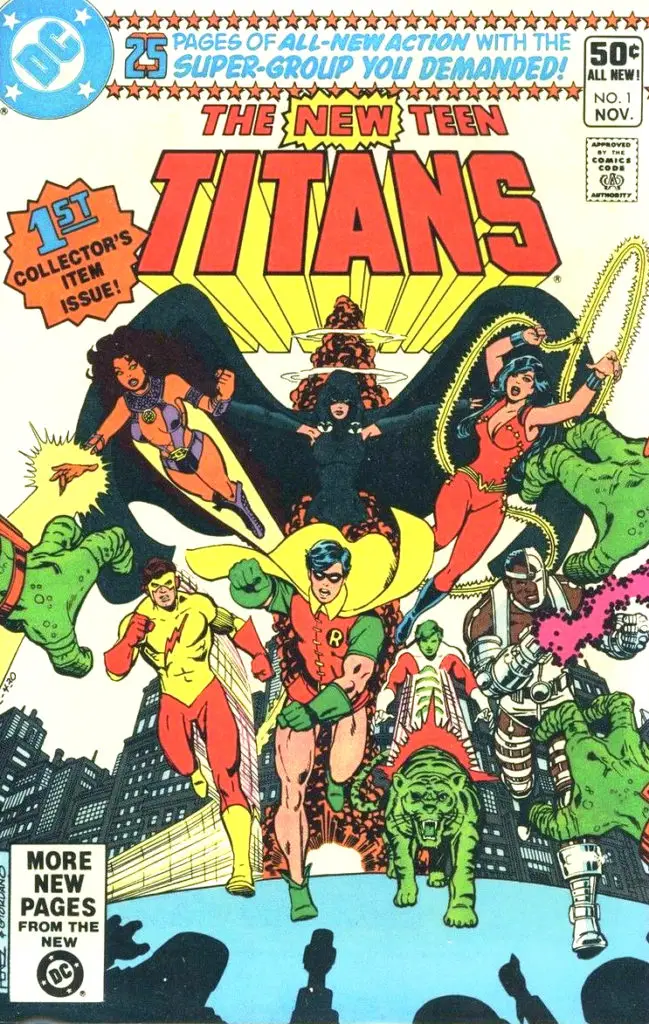
Essentially, Titans is the same show as the TNT pilot and based on the same source material. Titans is a passion project for both Goldsman and Johns, and, in particular, they wanted to adapt the Marv Wolfman/George Perez run of The New Teen Titans which spanned from the early ‘80s to mid-‘90s but “try to update it psychologically.”
Like the Wolfman/Perez comics, the team is comprised of Dick Grayson’s Robin, the alien Starfire, Beast Boy and Raven, who possesses demonic powers, and Wonder Girl and Kid Flash. In addition, Hawk and Dove, who both made several guest appearances in Teen Titans comics, are regulars in Season One. So far, the only member of the team to not make an appearance on the show is Kid Flash, but he will no doubt show up some time in the future.
In addition, there is one noticeable difference between the planned TNT pilot and DC Universe’s Titans. Barbara Gordon a.k.a. Batgirl was originally part of the project at TNT but has since been dropped.
The Difficulty in Translating Tone From Comics To Television
Goldsman noted the difficulties in bringing a singular tone to such a diverse group of characters, which was not so successfully realized in the DCEU’s Justice League.
“It’s been challenging because what the original run of Titans did nicely was allow different characters to exist in different genres which is easier in comic books right? Because you can jump genre panel to panel in a way that you really can’t from scene to scene [in television].
So, we have these characters with different tones. And a lot of the smoothing out of that then comes in editorial. When we first built the episode, it was actually in almost chapters. When Geoff and I wrote it and when we shot it and when we first cut it together it was in chapters. And the tones were different enough that if you didn’t interweave them you sort of—it was too jarring you know…[I]t’s an endless process of finding [tone].”
And while some characters—most notably Beast Boy—provide some lighter moments in Titans, the tone is decidedly darker than most DC shows. “We wanted to arrive at a tone that wasn’t as welcoming as some of the DC shows have been, nor as nihilistic as some of the films have been,” Goldsman explained.
Dick Grayson’s Violence Reflects The Psychological Damage Inflicted On Him By Batman
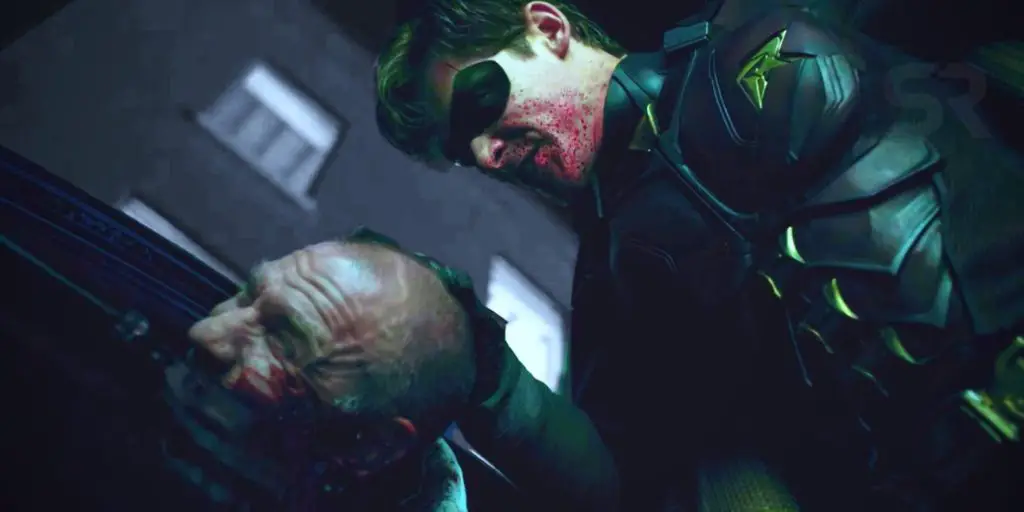
Certainly, there is an HBO feel to the production: a more grounded take on the superhero genre for DC with a gritty reality reflected visually in the low lighting and the violence. There is none of the campy violence seen in Gotham or the Arrowverse. When Robin, for instance, deals to villains you feel it in a visceral way. In the “F*ck Batman” sequence, Robin scrapes a thug’s face along a wall leaving a trail of blood and flesh. And in episode two he thrusts a pair of shears hilt-deep into a torturer’s groin, just moments after throwing an R-shaped ninja star into another villain’s eyeball.
But the violence isn’t meant to be gratuitous. As the central character of Titans, Dick Grayson sets the tone of the show. The “F*ck Batman” sequence happens early on in episode one and establishes Goldsman and Johns’ bold new take on the Batman and Robin story. One that provides plausible motivation behind the Boy Wonder’s brutality.
“This is a boy who at ten was weaponized…” said Goldsman. “The truth is he was taught how to really hurt people before he was in puberty…and that has psychological consequences.”
Goldsman added in another interview that “this Robin, right, is somebody profoundly cast under the shadow of Batman. He’s omnipresent in the show although absent…which is exactly how we feel about our dysfunctional fathers.”
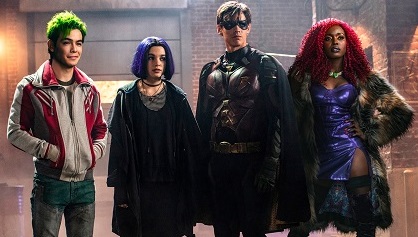
Dick’s backstory provides an interesting foundation for the theme of family that pervades the show. All these misfit characters are displaced, alone and most come from a dysfunctional background. And ultimately together as the Titans they become not just a team but a kind of family unit.
Goldsman described Batman as a nihilist, who is “arguably just punishing and being punished.” The young Dick Grayson got caught up in this brutality, and now as an adult he has to make a different choice and go in a different direction. “This is a story about people finding each other and finding family and healing through family,” said Goldsman.
